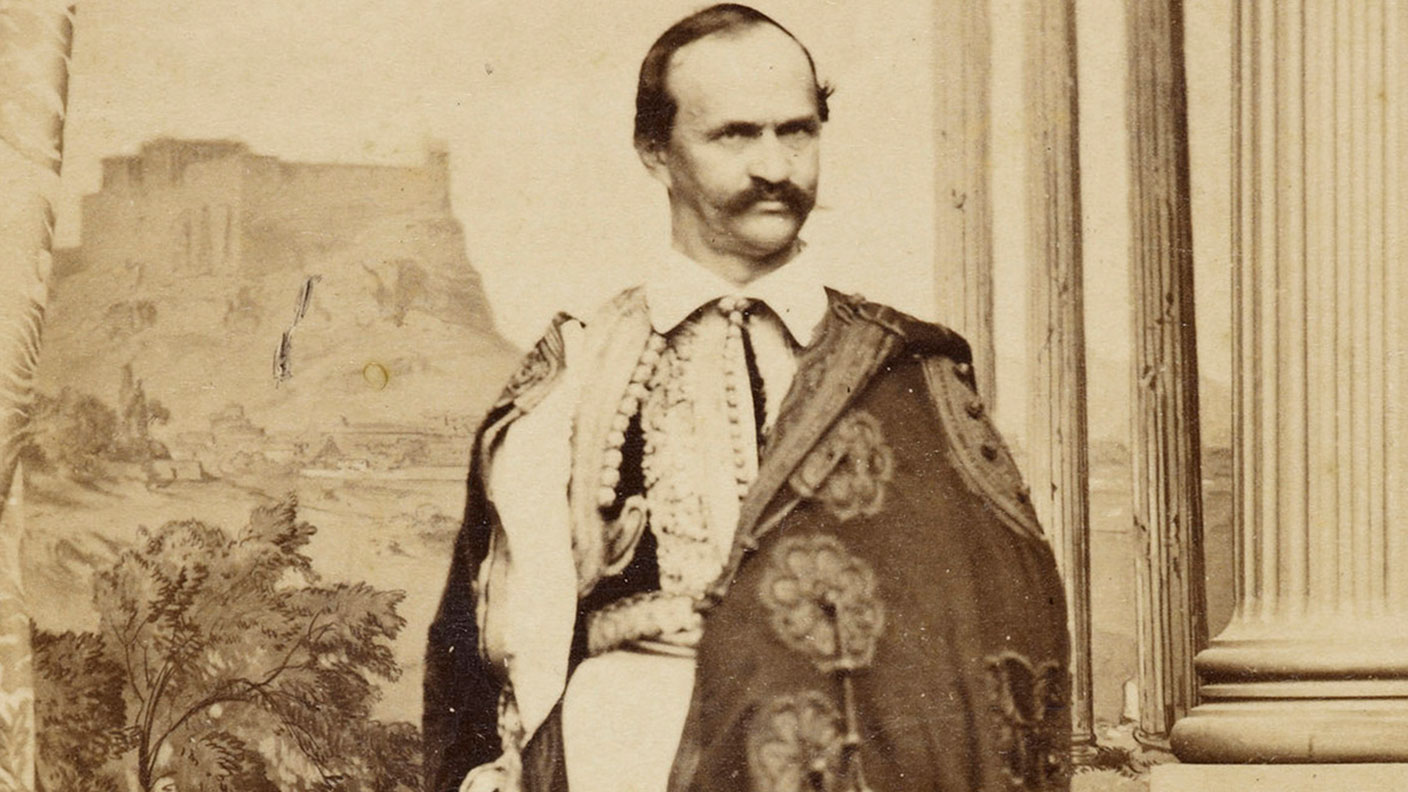3 September 1843: Greeks revolt against their German king
Fresh-faced King Otto, installed after independence from the Ottoman Empire, wasn't a hit with the Greek public. And today in 1843, they rebelled.


Get the latest financial news, insights and expert analysis from our award-winning MoneyWeek team, to help you understand what really matters when it comes to your finances.
You are now subscribed
Your newsletter sign-up was successful
Want to add more newsletters?
Greece on the brink of default, unable to pay the interest on its debt to a “troika” of creditors; under the thumb of German policymakers and torn between liberal Europe in the west and autocratic Russia in the east. Any of that sound familiar? No, we're not talking about the recent Greek debt crisis, we're talking about Greece over 170 years ago.
In the 1820s, Greece was involved in a long and bloody war of independence from Ottoman control. But the Greeks weren't just fighting the Ottomans, more often than not, they were fighting among themselves. Some looked to liberal Britain and France as role models. Others looked to Russia, which shared its Orthodox Christian faith. And all three – our troika – lent money to Greece in support of its war effort.
In the end, Greece won its independence. It even got its own king – a Bavarian prince, named Otto. Otto was only 17 when he was crowned, so a council of Bavarian regents ruled for him. When Otto did reach maturity in 1835, he began to throw his weight around.
Try 6 free issues of MoneyWeek today
Get unparalleled financial insight, analysis and expert opinion you can profit from.

Sign up to Money Morning
Don't miss the latest investment and personal finances news, market analysis, plus money-saving tips with our free twice-daily newsletter
Don't miss the latest investment and personal finances news, market analysis, plus money-saving tips with our free twice-daily newsletter
Soon the Greeks had had enough of their new king. They didn't like him, they didn't like his Roman Catholic faith, they didn't like his German protestant queen, and they certainly didn't like his Bavarian officials, who they termed the “Bavarocracy”. The country was poor and taxes were kept high to pay the interest on the debt.
On 3 September 1843, the army camped out in the main square in Athens, demanding the king grant the country a liberal constitution. Otto had little choice but to accept. Greece got its constitution, which guaranteed certain rights, including an extension of the right to vote. After that, the square was renamed Constitution Square – Syntagma in Greek – still a rallying place for protests.
Get the latest financial news, insights and expert analysis from our award-winning MoneyWeek team, to help you understand what really matters when it comes to your finances.

-
 ‘Why you should mix bitcoin and gold’
‘Why you should mix bitcoin and gold’Opinion Bitcoin and gold are both monetary assets and tend to move in opposite directions. Here's why you should hold both
-
 Invest in the beauty industry as it takes on a new look
Invest in the beauty industry as it takes on a new lookThe beauty industry is proving resilient in troubled times, helped by its ability to shape new trends, says Maryam Cockar
-
 31 August 1957: the Federation of Malaya declares independence from the UK
31 August 1957: the Federation of Malaya declares independence from the UKFeatures On this day in 1957, after ten years of preparation, the Federation of Malaya became an independent nation.
-
 13 April 1960: the first satellite navigation system is launched
13 April 1960: the first satellite navigation system is launchedFeatures On this day in 1960, Nasa sent the Transit 1B satellite into orbit to provide positioning for the US Navy’s fleet of Polaris ballistic missile submarines.
-
 9 April 1838: National Gallery opens in Trafalgar Square
9 April 1838: National Gallery opens in Trafalgar SquareFeatures On this day in 1838, William Wilkins’ new National Gallery building in Trafalgar Square opened to the public.
-
3 March 1962: British Antarctic Territory is created
Features On this day in 1962, Britain formed the British Antarctic Territory administered from the Falkland Islands.
-
10 March 2000: the dotcom bubble peaks
Features Tech mania fanned by the dawning of the internet age inflated the dotcom bubble to maximum extent, on this day in 2000.
-
9 March 1776: Adam Smith publishes 'The Wealth of Nations'
Features On this day in 1776, Adam Smith, the “father of modern economics”, published his hugely influential book The Wealth of Nations.
-
 8 March 1817: the New York Stock Exchange is formed
8 March 1817: the New York Stock Exchange is formedFeatures On this day in 1817, a group of brokers moved out of a New York coffee house to form what would become the biggest stock exchange in the world.
-
7 March 1969: Queen Elizabeth II officially opens the Victoria Line
Features On this day in 1969, Queen Elizabeth II took only her second trip on the tube to officially open the underground’s newest line – the Victoria Line.